One of Cumberland Islands main draws is the approximately 150 feral horses that roam free. They are the only not managed herd of feral horses on the East Coast. They get no food, water, care or population control from the Park Service. They only live on average 9 to 10 years of age because of parasites, natural accidents and disease. Also, they have digestive issues because of all the sand they eat.
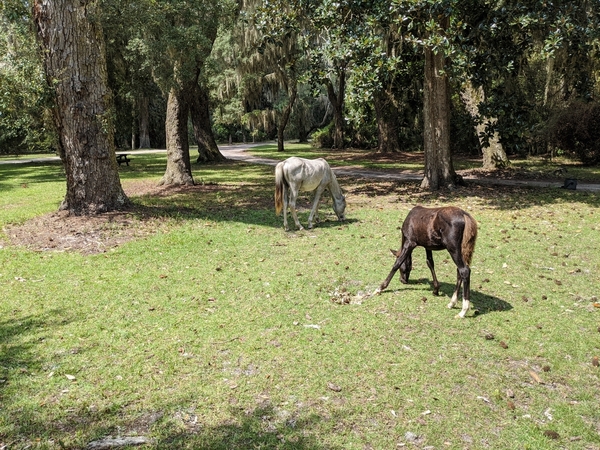
Some Cumberland Island visitors have been injured by the horses, so the park has advised visitors to stay 50 feet away. As you walk, you will see them closer than that. We gave them their space and they didn't seem to be bothering any people. And folks seem to be good about not feeding them so they don't become dependent on man for food.
The history of how the horses got to Cumberland island and how they became a feral herd is interesting. One theory is they were brought to the island by the Spanish in the 1500's. If they were, they most likely did not survive. The English started to settle the island in the 1700's and brought horses. Some horses now are descendants of horses brought by those settlers. A large majority of the horses began to roam freely and became feral. In the the 1800's, horses were captured and sold. They also were used as calvary horses in the Civil War. After the war, some were sold as horse meat. When the Carnegie family moved to Cumberland in the 1880s, they brought and stabled over 50 horses at Dungeness, the estate they bought and built a mansion on. Through the years, horses were taken on and off the Island. Property owners maintained them as free ranging livestock through the 1960s. When the park was established in 1972, the horses had become feral.
The feral horses are wonderful to see. I was impressed at how visitors were following the rules so the horses can live in peace. Some controversy still exists because the horses trample and eat some of the native plants. All in all though, the horses have got accustomed to their wild environment and they are loved by visitors from around the world.

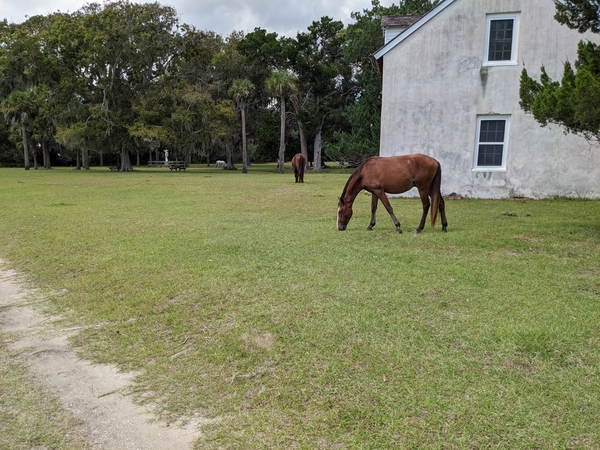
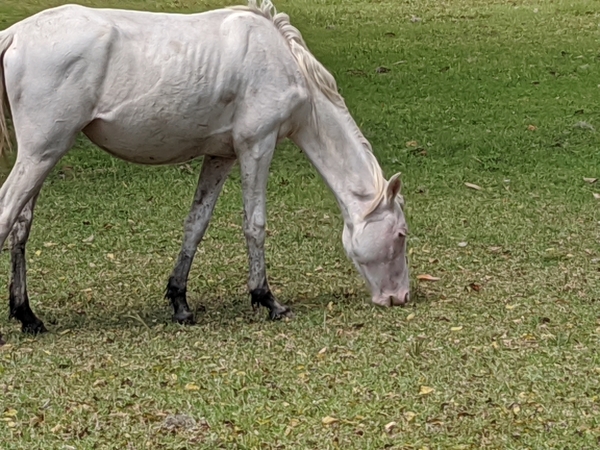
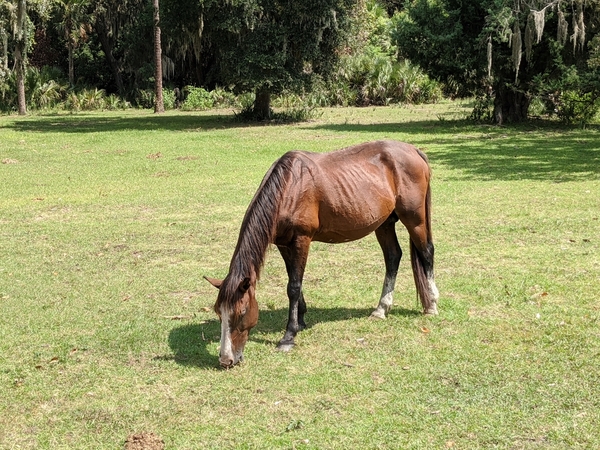
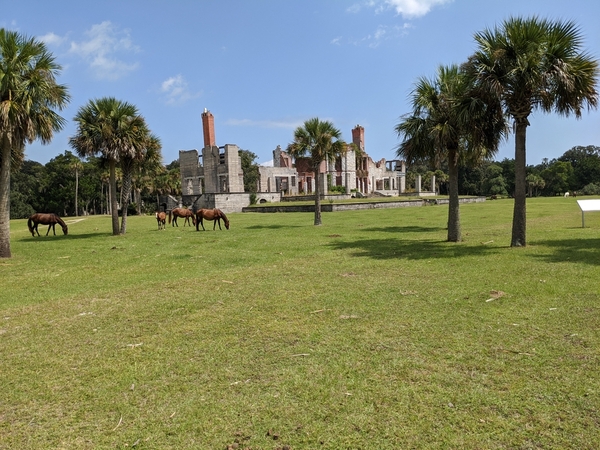
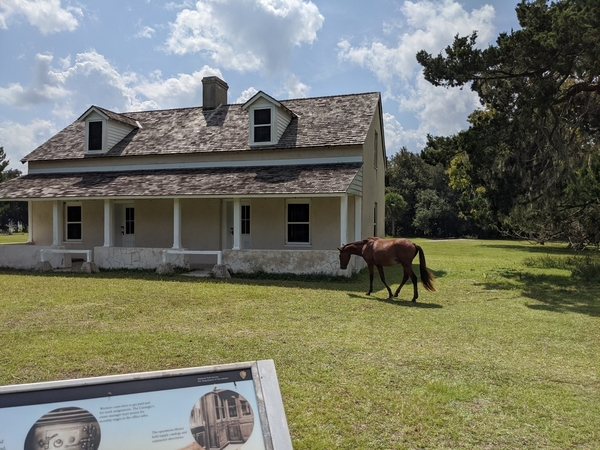
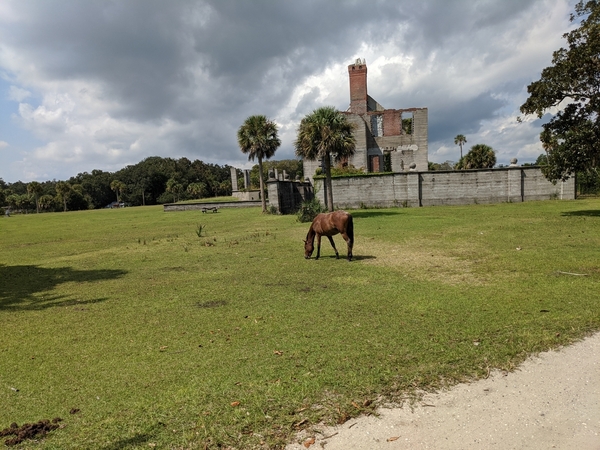
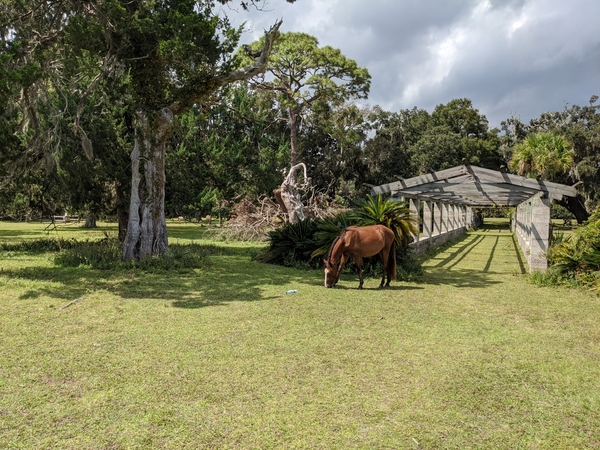
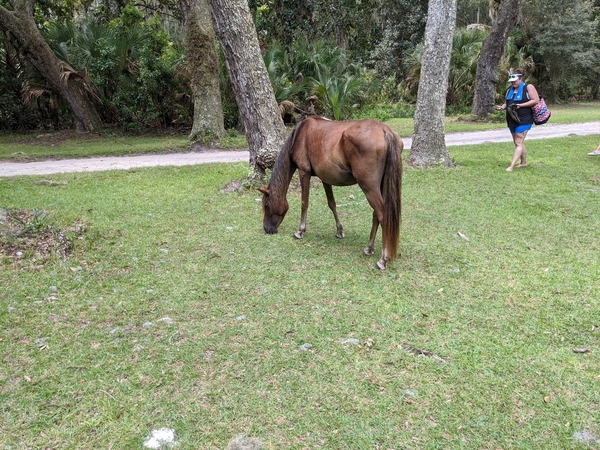
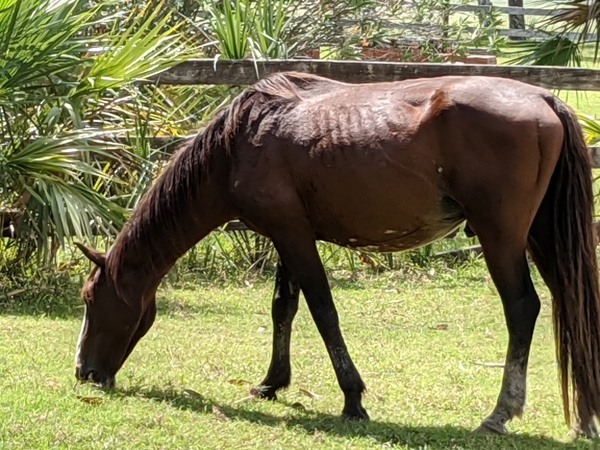
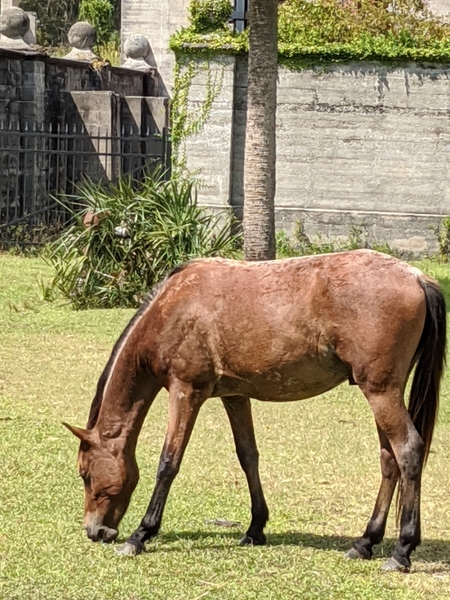
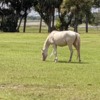











Comments (0)